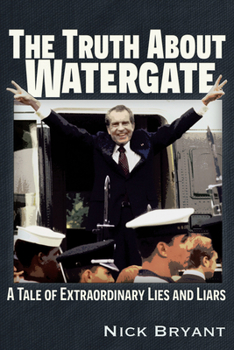The Truth about Watergate: A Tale of Extraordinary Lies & Liars
A delusion is a strong belief or conviction despite superior evidence to the contrary. The Watergate delusion, embraced by millions, is that swashbuckling Bob Woodward and the left confronted the malevolent Nixon administration as it cast a sinister pall over America and slayed it with the lance of truth, thereby saving democracy. But the actual evidence demonstrates that Watergate was not a shining example of democracy, and Bob Woodward's place among the pantheon of journalistic immortals is a grift. One of the grand deceptions of Watergate is that Nixon's enemies on the left razed his presidency, but it was actually his enemies on the right--the far right--who initially had the means, motive, and opportunity. And although Bob Woodward and Carl Bernstein told numerous lies throughout their Watergate reporting, Woodward's Big Lie was that he didn't meet Alexander Haig until 1973. As The Truth About Watergate takes the reader on a guided tour of the extraordinary lies and liars of Watergate, it demonstrates that Woodward's fabrication about Haig has seismic implications. If Woodward's Big Lie about Haig had been exposed, then the synergistic mythologies of Bob Woodward and "Deep Throat" would have been shattered and swept away by gusts of veracity. The Washington Post has scorned prior Watergate revisionist books, like Silent Coup: The Removal of a President as a conspiracy theory, but The Truth About Watergate shows The Washington Post has fervent, utilitarian motives for banishing Silent Coup to the conspiracy theory ghetto.
Format:Paperback
Language:English
ISBN:1634244281
ISBN13:9781634244282
Release Date:March 2024
Publisher:Trine Day
Length:220 Pages
Weight:0.55 lbs.
Dimensions:0.7" x 5.7" x 8.6"
Related Subjects
HistoryCustomer Reviews
0 rating





